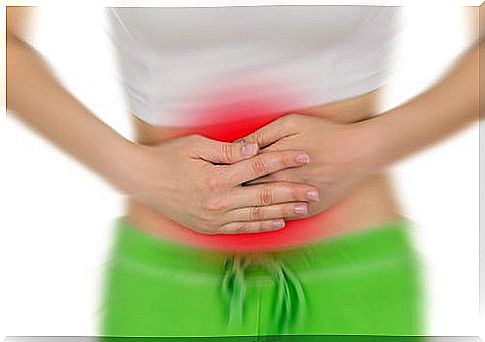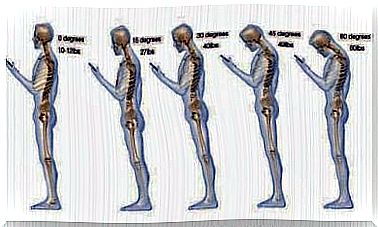How To Avoid Gas And Indigestion
Is it possible that stress is interfering with our digestion? You have surely already experienced it the hard way. A balanced emotional life is essential for your digestive health.

We can all suffer from indigestion, heartburn or gas. It is even very likely that you have already experienced this kind of intestinal discomfort, more or less frequently.
They usually occur when our body does not digest food properly. Digestion then becomes heavier and slower, which may be accompanied by bloating and gas.
We speak of “bad digestion” when this type of disease appears frequently, even daily and for several months in a row. Whereas indigestion is completely occasional and easier to treat.
Flatulence problems can also be much more common because they come at the same time as poor digestion. This problem is usually very troublesome for everyone, especially if the problem is chronic.
All of these problems can result from our daily lifestyle. It is for this reason that a few modifications can help you avoid the problem.
Avoid stress and nervousness
If you didn’t already know, the stomach is an organ that is very sensitive to emotional issues. When a person is stressed or having an anxiety attack or depression, the stomach begins to show up.
The person suffering from this type of disorder can then also suffer from burns, gas, or even indigestion. It is therefore important to lead a balanced personal life promoting a good condition of our stomach.
Eat healthy
Learning to eat properly is one of the key points in avoiding indigestion and gas. Indeed, when we chew our food badly, digestion is slower, because our stomachs have more difficulty in carrying out the digestive process, and the assimilation of nutrients.
In addition, you may suffer from gas from the excess air that you have ingested while eating “round” foods. It is therefore important to eat slowly, to chew food well in order to promote the salivation process and to correctly feel the feeling of satiety.
In addition, it is important to drink plenty of water during meals, as it neutralizes acids that can cause heavier digestion.
Take a nap after eating
It may indeed be a good idea to relax in order to allow the stomach to take energy from your body for good digestion.
So avoid doing physical activities right after eating and, on the contrary, get a little rest. You can, for example, take a nap on a sofa or in an armchair.
What could be bad for the health of your stomach and the well-being of your digestion, would be taking too long naps in bed after eating. Indeed, lying down just after eating promotes acid reflux.
Taking medicine on a full stomach
Many medications can cause indigestion. They should therefore be avoided as much as possible.
In case it is absolutely necessary for you to take any of these medicines, we recommend that you take it on a full stomach. In other words, during meals. This will prevent any discomfort during digestion.
Follow a balanced diet
A balanced diet is essential for good digestion and avoiding gas. Indeed, some foods can be quite heavy for the stomach to digest, so it is best to avoid them.
If you frequently suffer from gas and indigestion, we recommend that you reduce acidic, spicy, fatty foods, with too much fiber or any other food that may produce intolerance in you. In addition, you should also avoid the consumption of alcohol, tobacco, carbonated drinks and fried foods.
Do not eat before going to sleep
Many people have a bad habit of eating something before going to sleep which can be very heavy on the stomach. We therefore recommend that you stop eating three hours before bedtime.
Remember …
- Applying all of these tips in your daily life can help you gain better control over your digestion and say goodbye to gas and bloating. Also remember that it can be useful to use natural remedies like ginger and lemon, both to fight gas and to relieve indigestion.
- Also, remember that stomach and digestive issues can also be taken seriously if they occur very frequently in your life. If heartburn, indigestion and gas occur more than twice a week then make an appointment with the doctor as this may indicate a more serious problem, such as irritable bowel syndrome, infections. gallbladder, or food allergies, and in the worst case certain types of cancer.









